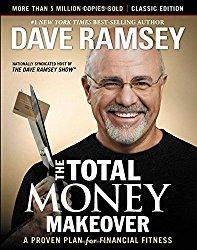The term “short sale” has come more into the popular vernacular lately in reference to the real estate transaction in which the lender allows the borrower to sell a house for less than is owed for the property. In stocks and other securities a short sale is something entirely different. Today I will discuss short sales as they relate to securities.
In securities, a short sale goes as follows – An investor (or speculator) calls her broker and says that she wants to sell 100 shares of company XYZ short at $50 per share. Her broker goes out and borrows the shares (usually from someone who has a margin account who is currently on margin) and then sells the shares for $50. The broker deposits the proceeds, less commissions, in the investor’s account. At some later date, to close the transaction, the investor must purchase the shares, replacing those that were borrowed. (Note that this person will probably not know that the shares were every borrowed, and if he decides to sell his shares during the period shares from another person must be found and used for the sale.) If the company pays a dividend while the short seller still has the position open she must pay the dividend to the person from whom the shares were borrowed (who again doesn’t know they are gone).
Learn to master your money with these great books from Amazon:


If the investor who did the short sale is able to buy the shares back at a lower price, say $40 per share, she will make the difference in price ($50-$40)x100 = $1000, minus commissions and any dividends she had to pay. If the stock rises above the price she sold them for and she closes the position, she will lose money. Obviously, stocks are sold short when an investor thinks it will decline in price. Because stocks naturally tend to increase in price (because of inflation if nothing else), selling short is not a long-term strategy.
Now that I’ve explained the basics, you may wonder if short selling is a good strategy for and investor. After all, why not make money when the market is going down as well as when it is going up. The issue is that you really don’t know very often when the market will be going down. You can certainly tell when the market is overpriced, but that does not mean that the market won’t continue to be overpriced, or even get more overpriced, before stocks finally pull back. Sometime earnings will also increase rapidly, making stocks fairly priced again.


Coffee Variety Sampler Pack for Keurig K-Cup Brewers, 40 Count
San Francisco Bay OneCup, Fog Chaser, 80 Single Serve Coffees
KRUPS F203 Electric Spice and Coffee Grinder with Stainless Steel Blades, 3-Ounce, Black
There are maybe two situations where short selling might be worth it. The first is called selling short against the box. In this strategy you sell short shares of a stock you already own, telling your broker that you want to sell short against the box. He will then borrow and sell some shares, yet leave your original position alone, meaning that you’ll have both a long position and a short position. When you are ready, you simply tell your broker to wash the two positions and you close both sides. The reason for doing this is if you want to take a profit in case the stock is about to decline, but want to move the gain into a future year for taxes.
The other time is when the market is really, really overpriced and ready for a fall, or you see something coming like the 2008 housing crisis, and you want to protect your portfolio without selling everything. In this case, you can take some short positions, effectively going neutral or near neutral on the market, as a way to protect yourself, For example, in 2007 I was shorting mortgage companies since I figured they would decline when the housing boom ended.

Have a question? Please leave it in a comment. Follow me on Twitter to get news about new articles and find out what I’m investing in. @SmallIvy_SI
Disclaimer: This blog is not meant to give financial planning or tax advice. It gives general information on investment strategy, picking stocks, and generally managing money to build wealth. It is not a solicitation to buy or sell stocks or any security. Financial planning advice should be sought from a certified financial planner, which the author is not. Tax advice should be sought from a CPA. All investments involve risk and the reader as urged to consider risks carefully and seek the advice of experts if needed before investing.
